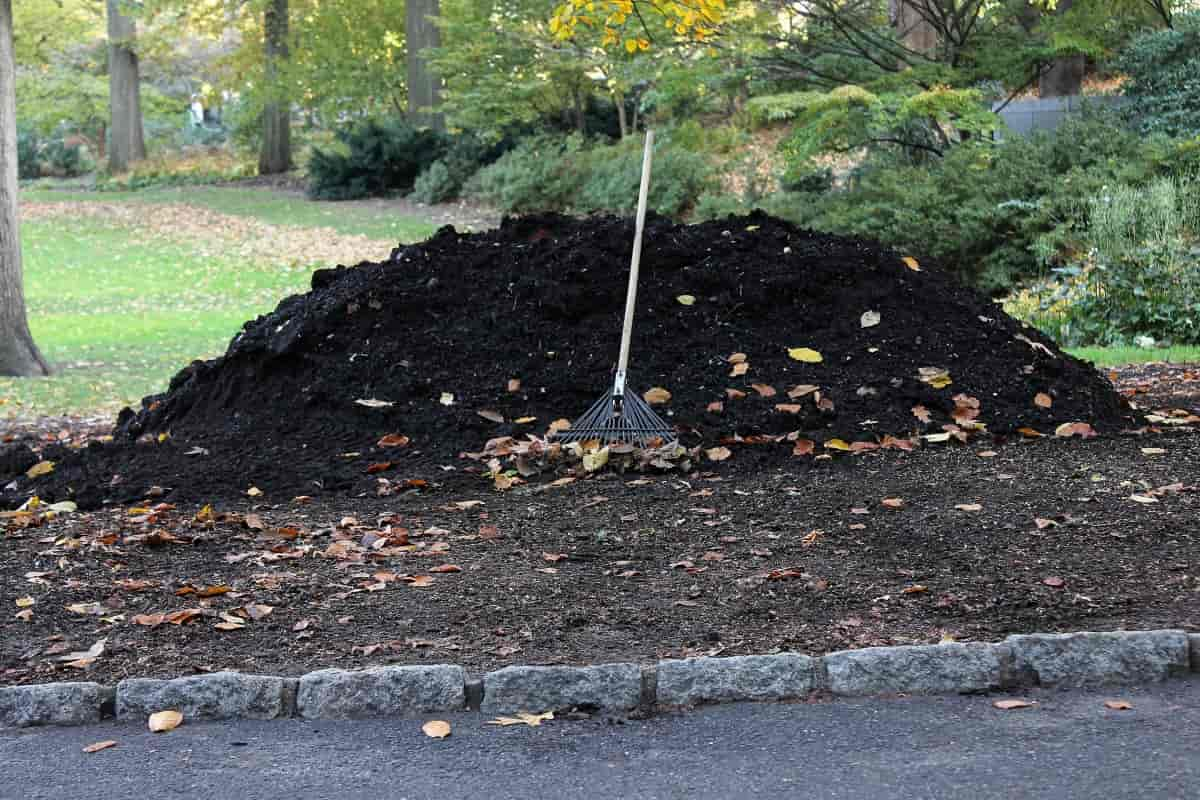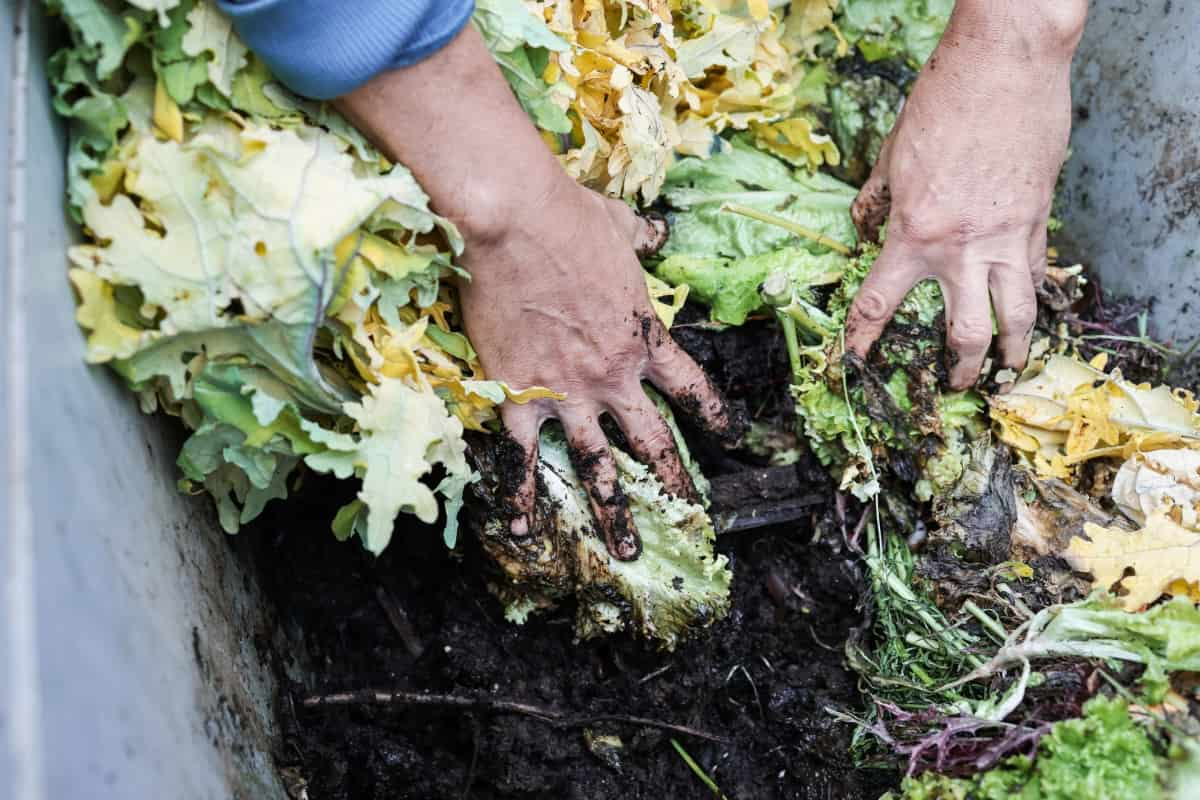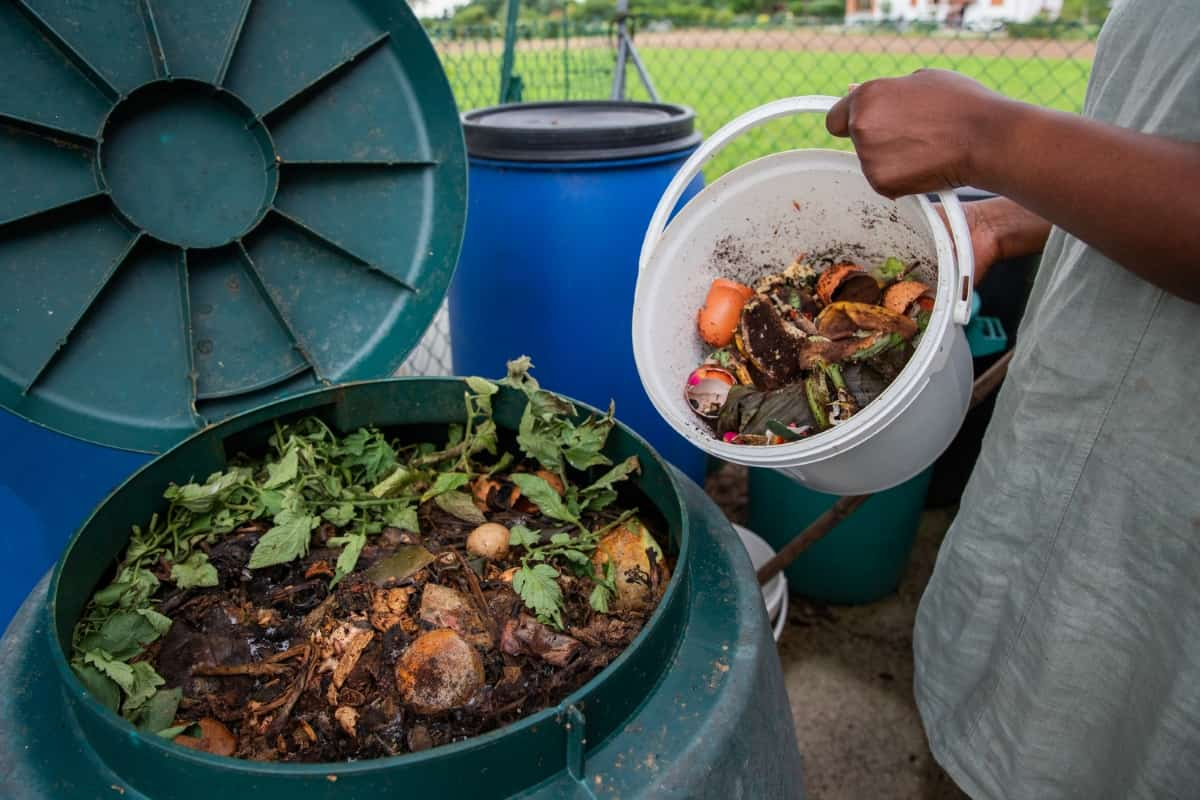Composting is a natural process that converts kitchen scraps and yard waste into nutrient-rich soil additives, ideal for gardening and plant nourishment. Incorporating baking soda into this process can yield numerous benefits, including odor control, pH balance, and pest prevention. From how to use baking soda for composting in winter to its applications in the garden and for plants, this guide explores the versatile roles of this common household ingredient.

While some may wonder if substitutes like baking powder can be used, the focus is on baking soda and its effectiveness in composting. We will also look at how to dispose of baking soda properly and its use in tackling issues like powdery mildew, all of which contribute to a healthier composting practice.
How to Use Baking Soda for Composting
Understanding the Benefits of Baking Soda in Composting
Baking soda, a simple yet powerful compound, can enhance composting efforts in various ways. It serves as a natural pH regulator, ensuring that the compost’s acidity levels remain conducive to microbial activity, which is crucial for breaking down organic matter. It also helps reduce odor and control ammonia levels, making the composting process more pleasant for those involved.
Moreover, baking soda for composting can deter pests and treat fungal issues like powdery mildew, which often affects compost piles. These benefits make it a valuable addition to the composting process, offering a more efficient and less problematic decomposition of waste.
Step-By-Step Guide: Incorporating Baking Soda Into Your Compost
To use baking soda for composting effectively, sprinkle a thin layer over your compost pile or bin. Avoid adding too much, as it can alter the pH balance unfavorably. When composting in winter, the process slows down due to lower temperatures, but adding baking soda can help maintain the activity level of the composting microbes.
For garden composting, evenly distribute baking soda to prevent clumping and ensure it reaches all parts of the pile. If using baking soda for composting plants, it’s crucial to mix it well into the compost before applying it to ensure that the pH levels are consistent throughout.
Enhancing Compost Quality with Baking Soda: Tips and Techniques
Using baking soda in your compost pile should be done with care to avoid disrupting the delicate balance of the composting ecosystem. A light sprinkling every few weeks is sufficient. It’s also wise to turn your compost regularly to distribute the baking soda throughout the pile.
In case you missed it: Benefits of Baking Soda for Houseplants

This aids in maximizing nutrient retention in the compost, ensuring that your plants will benefit from the full spectrum of nutrients available. Additionally, to prevent issues like powdery mildew, monitor your compost’s moisture levels, as overly damp conditions can promote fungal growth, which baking soda can help address.
Exploring the Chemical Reactions of Baking Soda in Composting
Baking soda, or sodium bicarbonate, is a neutralizing agent that reacts with acidic and alkaline substances. In the compost pile, it can help mediate the pH levels, which, if too acidic or alkaline, can hinder the decomposition process. This reaction ensures the compost remains at a neutral pH, making it more suitable for plant growth. The chemical reactions of baking soda in composting also play a role in the breakdown of organic materials, contributing to a quicker and more efficient composting process.
Using Baking Soda as a Natural pH Regulator in Compost
Maintaining the correct pH level in compost is crucial for the survival of composting microbes. Baking soda is a buffering agent, preventing the compost from becoming too acidic. This is particularly important when composting materials like citrus peels or coffee grounds, which can lower the pH. By adding baking soda, you ensure that these materials break down properly without harming the beneficial bacteria and fungi in the compost pile.
Maximizing Nutrient Retention in Compost with Baking Soda
Nutrient retention is key for a successful compost that will enrich plant soil. Baking soda helps retain nitrogen, an essential nutrient for plant growth, by minimizing the volatilization of ammonia. When ammonia gas is released, it is unpleasant, and valuable nitrogen is lost. By keeping ammonia levels in check, baking soda ensures that the maximum amount of nutrients is available in the finished compost for your plants.
Reducing Odor and Ammonia Levels in Composting with Baking Soda
One of the most appreciated benefits of using baking soda in composting is its ability to reduce unpleasant odors. These odors are often caused by the breakdown of nitrogen-rich materials, which release ammonia. Baking soda neutralizes this ammonia, thus mitigating the odor. This makes the composting experience more enjoyable and prevents the attraction of pests to the compost pile. Additionally, by controlling the ammonia levels, baking soda helps to maintain a healthier environment for the composting organisms.
In case you missed it: How to Balance Soil pH with Baking Soda: Create Optimal Conditions for Plant Growth

Baking Soda as an Effective Pest Control Agent in Compost
Baking soda is beneficial for balancing pH levels and controlling odors and acts as a deterrent for certain pests in compost. The scent and taste of baking soda repels many insects and small rodents. By sprinkling it around the perimeter of your compost pile or directly on top, you can create a less attractive environment for these creatures. However, it’s important to use it sparingly, as a heavy hand can harm the very microbes you’re trying to protect. With careful application, baking soda can keep pests at bay while your compost transforms into a valuable soil amendment.
Promoting Decomposition and Accelerating Composting with Baking Soda
The decomposition process in composting relies heavily on maintaining a balanced environment where organic material can break down effectively. Baking soda can contribute by neutralizing acidic conditions that slow down microbial activity. In this way, it promotes faster decomposition, helping to accelerate the composting process.
The key is to ensure that baking soda is mixed thoroughly into the compost to work effectively without overwhelming the natural process. Regularly turning the compost after adding baking soda will also encourage aeration, vital for microbial activity and the breakdown of compost materials.
Common Mistakes to Avoid when Using Baking Soda for Composting
While baking soda can be a valuable addition to compost, there are common mistakes that should be avoided to prevent disrupting the composting process. First, do not confuse baking soda with baking powder; they are not interchangeable, and baking powder should not be added to compost. Another mistake is using too much baking soda, which can lead to an imbalance in the pH level, adversely affecting microbial life.
In case you missed it: Can Vinegar or Baking Soda Kill Leaf Miners: How About Neem Oil?

It’s also crucial not to rely solely on baking soda for odor control; proper composting practices, such as balancing greens and browns and ensuring adequate aeration, are essential. Lastly, avoid using baking soda on very young compost or in large quantities, as this can halt the decomposition of organic matter and inhibit the growth of beneficial bacteria and fungi.
Conclusion
Baking soda can be a beneficial addition to compost, aiding in pH balance, odor control, and pest deterrence when used correctly. However, it’s essential to apply it judiciously and in conjunction with good composting practices to enhance the health and efficiency of the composting process.
- Feed Your Flock for Less: Top 10 Tips to Save on Chicken Feed
- Ultimate Guide to Ossabaw Island Hog: Breeding, Raising, Diet, and Care
- Hatching Answers: The Top 10 Reasons Your Chickens Aren’t Laying Eggs
- Eggs and Economics: Breaking Down the Cost of Raising Backyard Chickens
- Defend Your Greens: Proven Methods to Keep Iguanas Out of Your Garden
- Ultimate Guide to Cinnamon Queen Chicken: A Comprehensive Guide for Beginners
- Ultimate Guide to California Tan Chicken: Breeding, Raising, Diet, Egg-Production and Care
- Ultimate Guide to Marsh Daisy Chicken: Breeding, Raising, Diet, and Care
- 10 Types of Chicken Farming Businesses You Can Start for Profits